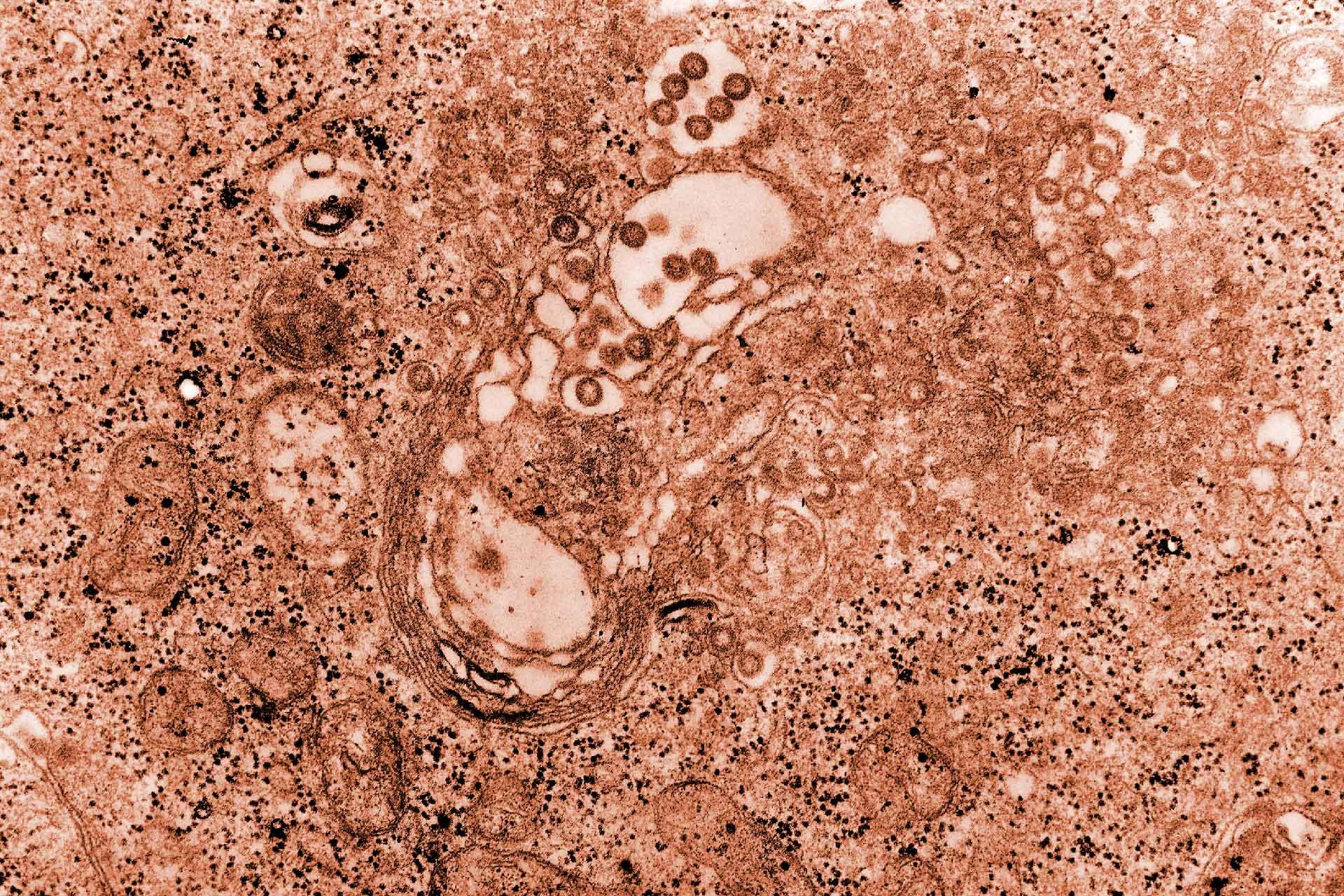The Pirbright Institute is one of the largest recipients of the Government’s new £120 million fund to fight deadly diseases – winning £1.580 million with its partners, for a joint project to develop a safe and effective livestock vaccine against Rift Valley fever.
Rift Valley fever (RVF) is an emerging global health threat which has been prioritised for vaccine research and development by the World Health Organisation and other international health bodies. The vaccine development project is a collaboration between Pirbright, the Jenner Institute at the University of Oxford and the International Livestock Research Institute in Nairobi.
RVF is caused by the Rift Valley fever virus (RVFV), which although currently restricted to Africa and the Arabian Peninsula, can be transmitted by at least ten mosquito species that are more widely distributed than RVFV is at present, which has led to concern about the potential for further spread of the disease.
Sheep, goats, cattle and camels are highly susceptible to RVFV infection, which causes high rates (up to 90%) of mortality, but the disease can also spread to humans through infectious mosquito bites and contact with RVFV-contaminated tissues and fluid. The high levels of human disease and mortality during the last major outbreak in 2006/7 in eastern Africa, highlights the urgency of developing a comprehensive control programme.
No licensed vaccines are currently available for humans, and the RVFV livestock vaccines that use live virus and are widely used in Africa, vary in their effectiveness and have other major drawbacks, such as the need for expensive high containment facilities during production.
Dr Bryan Charleston, Interim Director and CEO of the Institute said: “We are delighted to have won funding for this project and to have secured funding for two other projects(1) from this major new Government programme. It is a powerful endorsement of the world class science that we are delivering at Pirbright.
“We will be conducting field trials in Kenya of a new vaccine candidate which has a better safety record than existing vaccines and has been shown to be more effective. In trials, a single-dose provides 100% protection against RVFV challenge in sheep, goats and cattle; outperforming the most widely used licensed livestock RVFV vaccine in Africa.
“This project will address an important disease in Africa and provide a tool to aid the control of disease in countries currently free of RVFV that experience outbreaks either through natural causes or by malicious spread. It highlights the importance of the many national and international partnerships that we have fostered and how these facilitate our work in fighting existing and potential disease threats to the UK and globally.”
Members of the Jenner Institute based at Pirbright and Oxford have been working for a number of years on developing a vaccine against RVFV. The team for this project will be led by Dr George Warimwe, who is jointly funded by the two organisations.
Dr Warimwe said, “Working with colleagues at ILRI in Nairobi, Kenya, where the disease is endemic, has been very productive and we will build on this successful collaboration. We have also had positive discussions with the regulatory authorities in Kenya regarding field studies with this new vaccine. If successful this would enable us to register and produce the vaccine in this region and potentially pave the way for registration and use in other African countries as well.
“This project runs in parallel to studies to develop the same vaccine platform for use in humans. The synergy between the two programmes will facilitate progress in the development pipelines for human and animal vaccines.”
1) The Pirbright Institute also won Government funding for two other vaccine development projects:
a) £2.760m: Advanced development of a safe and effective vaccine for livestock and humans for Crimean Congo Haemorrhagic Fever (The Pirbright Institute and Public Health England).
b) £1.690m: Phase 1 studies of a novel chimpanzee adenovirus Rift Valley Fever vaccine for humans (MRC Uganda Virus Research Institute, with Jenner Institute, Oxford and The Pirbright Institute). The Pirbright Institute does not conduct any primate research.
* Image by F. A. Murphy; J. Dalrymple courtesy of Public Health Image Library (PHIL)
